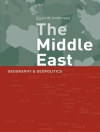The Pedagogy of Special Needs Education: Phenomenology of Sameness and Difference outlines how to understand the inner and behavioral lives of children with intellectual disability through the psychology and phenomenology of ‘stories’ derived from the experiences of living with these children.
The book inquires into the meaning of the experiences of children with intellectual developmental disability using a phenomenological method. It examines how the external behaviors of children with special needs may look different from children without these needs but actually do share many similarities at the phenomenological level of lived experience. Themes of difference and sameness are employed for exploring the significances of phenomena such as ‘finger play, ‘ ‘eating as selffeeding, ‘ ‘smiling and turn-taking, ‘ ‘self-talk, ‘ and ‘don’t touch me.’ Throughout the narrating and interpreting of the case studies within the book, the author shows the tensional dialectic between individual and collective difference in order to understand what is required to help children with intellectual disability become themselves and form their personal self-identity.
The Pedagogy of Special Needs Education can be used in schools, seminars, and courses related to special education programs and in special needs curricula for children with developmental disabilities. It can also support childcare professionals who carry orthopedagogical responsibilities and who are concerned about the wellbeing of children and their families experiencing special needs. Additionally, this book is valuable to students, researchers, teachers, and others interested in a hermeneutic phenomenological approach to human science, professional practice issues, and qualitative research methods.












